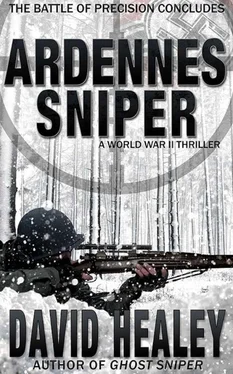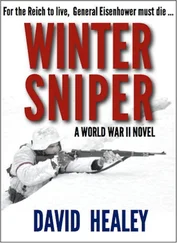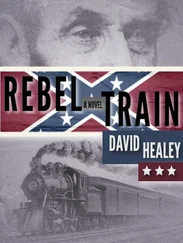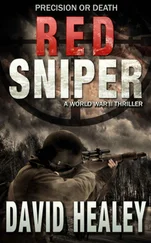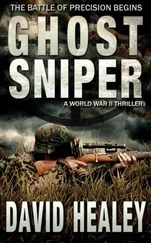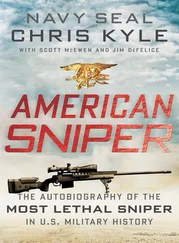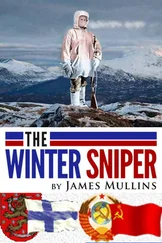Vaccaro was going to be all right. The bullet had only grazed him, but he didn’t seem to be in any hurry to get back to the fighting.
“How long you fixin’ to be in here?” Cole asked. “Looks to me like you’re patched up.”
“It’s all about the exit wound,” Vaccaro said. “This is my exit from having to put my ass back out there in that freezing weather. Did you get the bastard who shot me? I’ll bet you a hundred bucks it was Das Gespenst.”
“I’m workin’ on it.”
“How about this — you get him and then I’ll come out of the hospital.”
“Vaccaro, I never pegged you for a coward.”
Vaccaro smirked. “It ain’t that, Cole, and you know it. Look around you. This sure as hell ain’t the Taj Mahal but it’s warm and dry. I got plenty to eat. Nobody is shooting at me. Hell, I plan on staying in here until they kick me out or we get sent home.”
“Then I reckon your hospital stay just got better,” Cole said, producing the bottle of wine and a corkscrew, which he considered a fiddly thing. In his opinion, a bottle of liquor ought to have a cork you could pull with your teeth. He opened the bottle and filled tin mugs for them both.
“You’re all right, Cole. I don’t care what Jolie says about you.”
“What does she say about me?”
“Jee-suz, Hillbilly. Relax, will you? It’s a joke that people from civilization use.”
Cole gulped down a cup of wine, which was another surprise. He never was much of a drinker. “Listen, I got a favor to ask.”
“Sure — as long as I can do it without getting out of bed.”
Cole handed him the pencil and paper. “I need you to write me a note.”
“What the hell are you talking about, Cole? Do I look like Ernest Hemingway?”
“Who’s that?”
“Never mind. What I mean is, I’m not much of a writer. The nuns in school always smacked my knuckles because my handwriting was so bad.”
“But you can read and write?”
“Do I look like an idiot? Sure I can read and write.” Then it dawned on Vaccaro. He stared at Cole. “You mean you can’t?”
“Why the hell do you think I’m here.”
Vaccaro nodded, any thoughts of gloating having vanished at the edge in Cole’s voice. “Don’t get sore. I’ll do it. Listen, where I grew up there’s book smarts and street smarts. One can be as good as the other, depending on the situation. You got plenty of street smarts. Or maybe woods smarts in your case.”
Cole handed him the pencil and paper, then told him what to put in the note. “Make the letters big enough so the son of a bitch can see it.”
“Cole, he shot me from three hundred yards. I don’t think there’s anything wrong with his eyes.” He handed the paper back to Cole. “That’s it? I don’t get the twelve o’clock part. How you know what position you’ll be in?”
“It don’t matter where I am. It matters where I put this here note. With any luck, it will be the last thing ol’ Das Gespenst reads.”
Under cover of darkness, Cole slipped across the fields and into the woods. He dressed warmly against the bitter cold, with a white smock made from a sheet to camouflage his uniform. Over a wool cap, he wore his Confederate flag helmet with the bullet hole in it. He carried his rifle in his hands.
Strapped across his back were a half dozen fence pickets with names painted on them. He had put aside his pride to have Vaccaro write him that note, but he could manage to scrawl last names on a scrap of wood. He had used the names of dead snipers: Rowe and McNulty. He also used the name of Jimmy Turner, the simple country kid who had died in the first minutes on Omaha Beach and who had no more business in a war than a choir boy had in a prize fight. The last name scrawled on a picket was Cole’s own.
The forest was absent of any human sounds. The artillery had fallen silent for the night, and it was hard to know that thousands of men were nearby, dug into foxholes, waiting for a German breakout attempt that would never happen. The pine trees whispered in the night breeze. He heard an owl, then the screech of some animal hunting.
Cole felt right at home. Where others would feel spooked in the woods at night, alone, he knew that running across an animal was the least of his worries. The two-legged kind were the ones to fear tonight.
Fortunately, anyone in the forest would have a hard time seeing him in the nearly pitch blackness. Cole’s night vision was good enough for him to see the looming tree trunks against the snow for several feet ahead. He stopped periodically to check his compass, because it would be easy to get off course in the dark — the stars above were hard to see through the pine canopy. He had coated the inside of the compass lid with a dusting of powder made from ground-up fireflies. It was just enough light to make out the compass needle without affecting his night vision.
The ground grew steeper, forcing him to move more slowly. However, he stayed off the old sunken road through the woods and walked parallel to it instead, keeping to the trees. The last thing he wanted to do was leave footprints on that road. It took him a while in the dark, but he managed to cross two miles of woods and emerged in the clearing he had scouted yesterday. The Germans would walk right into it if they followed the sunken road through the woods, as they surely must.
He could still hear the whisper of pine trees overhead, but the other night sounds had fallen quiet. Not so much as a rabbit stirred. Was someone — or something — in the forest?
After the darkness among the trees, the open field was almost blinding, even at night. Surrounded by nothing but snow, he felt very exposed. He stepped back into the trees. Something did not feel right.
He waited, rifle at the ready, biding his time. A minute passed. And another.
Then he saw a flicker of flame in the trees to his right. Soon, the smell of the cigarette drifted toward him.
He was not alone.
Who else would be in the woods at this hour?
His plan depended on no one else seeing him, of course. He thought about what he needed to do.
He unslung his load of pickets and placed his rifle on top. This had to be done quietly. He didn’t want to fire a shot and take a chance that there were other scouts nearby. He slipped off his mittens. Pulled his knife free of its sheath.
Silently, he moved through the trees toward where he had seen the flicker of flame. He took his time. He had all night. Now and then, he caught a whiff of cigarette smoke.
He covered the last few feet as cautiously as if he had been crossing a glass bridge over a chasm. He moved as silently as if his life depended on it — which it did.
He could see the man standing next to a tree, looking out over the field.
Not an American. A German. The square stahlhelm was the giveaway.
He realized he had been foolish to think that he would be the only one staking a claim to these woods. The Germans weren’t fools — they had sent a scout to keep watch over the clearing.
He was now within twenty feet of the German, and he was totally undetected.
He tested his grip on the knife in his hands. How fast could he move? Not fast enough.
What he needed was a distraction. The snow covered anything useful, like a stick. He groped in his pockets, hoping for — he wasn’t sure what.
His hand touched the compass. It was military issue, nothing fancy. He could get another one when the time came.
Even with its metal cover, the compass weighed only a few ounces, but it was enough. He brought his right hand back beside his ear, then with a single smooth motion flung the compass away into the trees.
He got lucky in that he missed hitting any trees close by and the compass made a noise when it finally smacked against a tree.
Читать дальше
